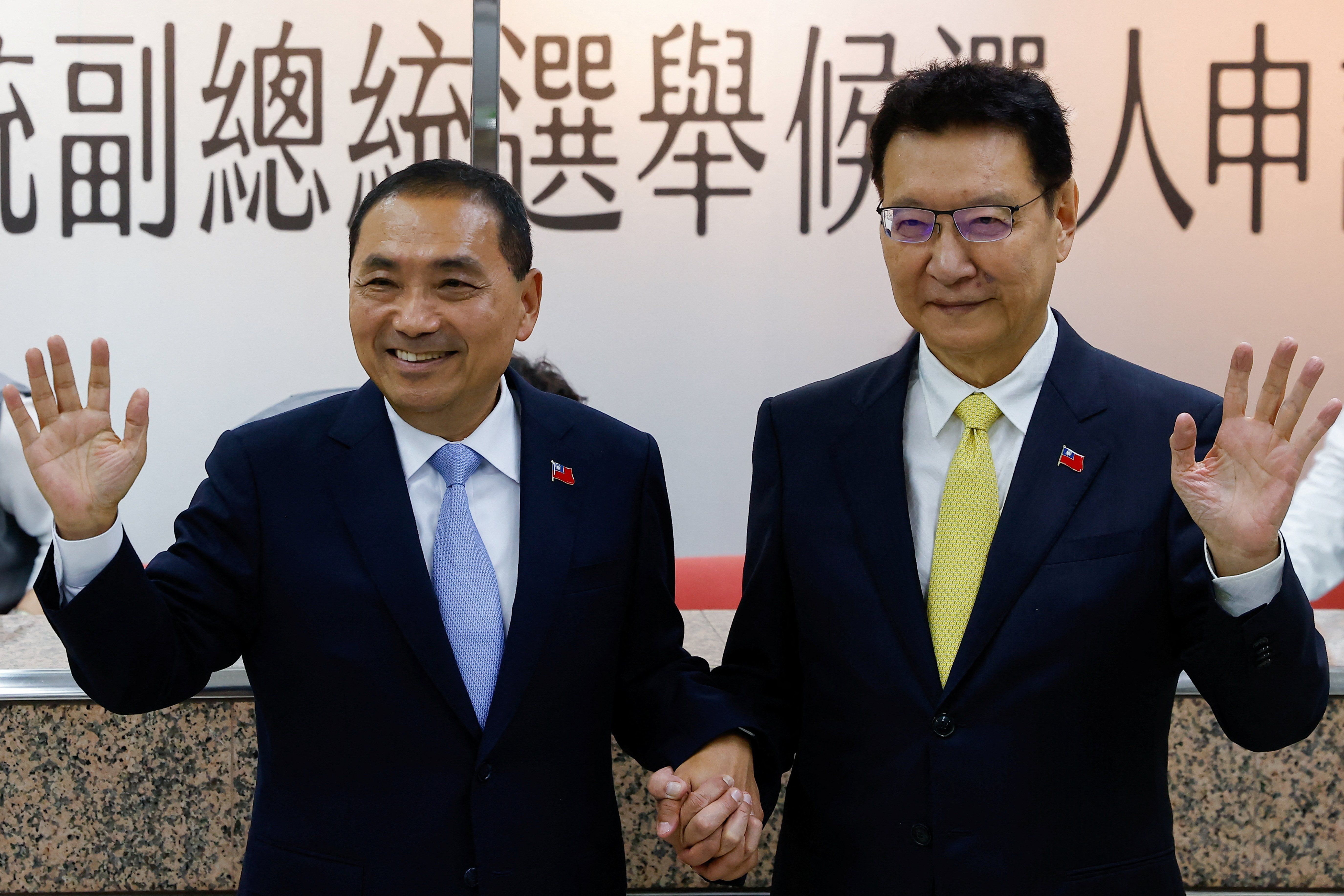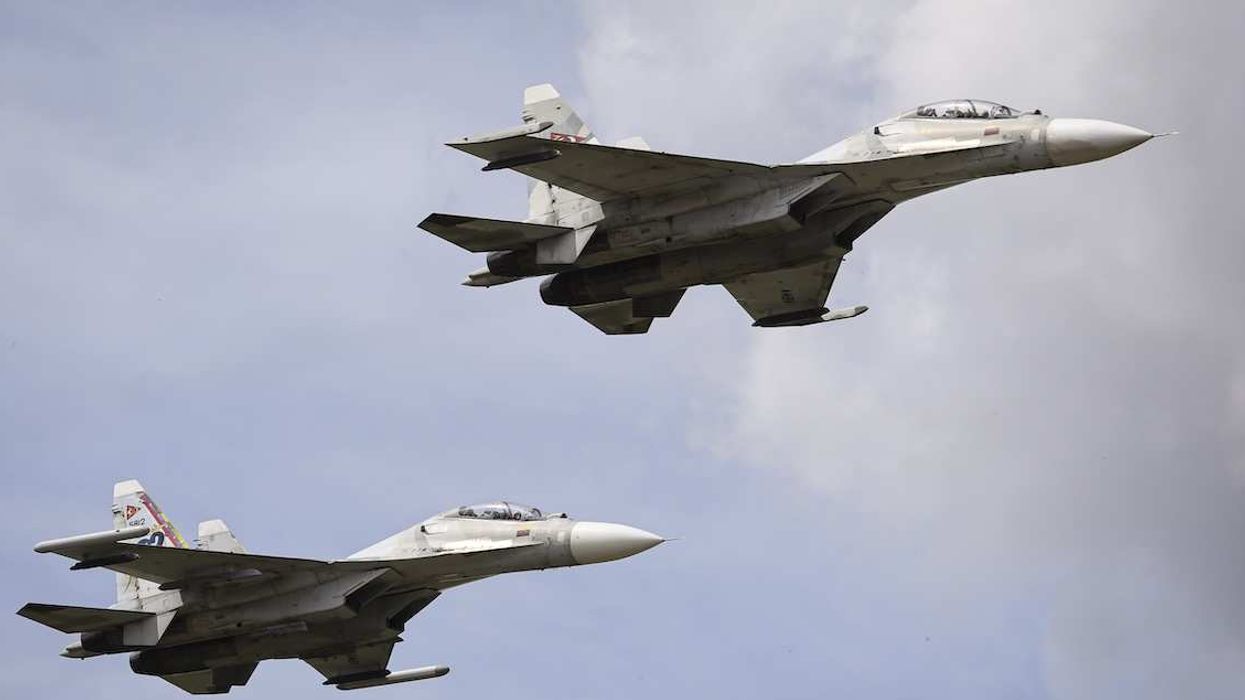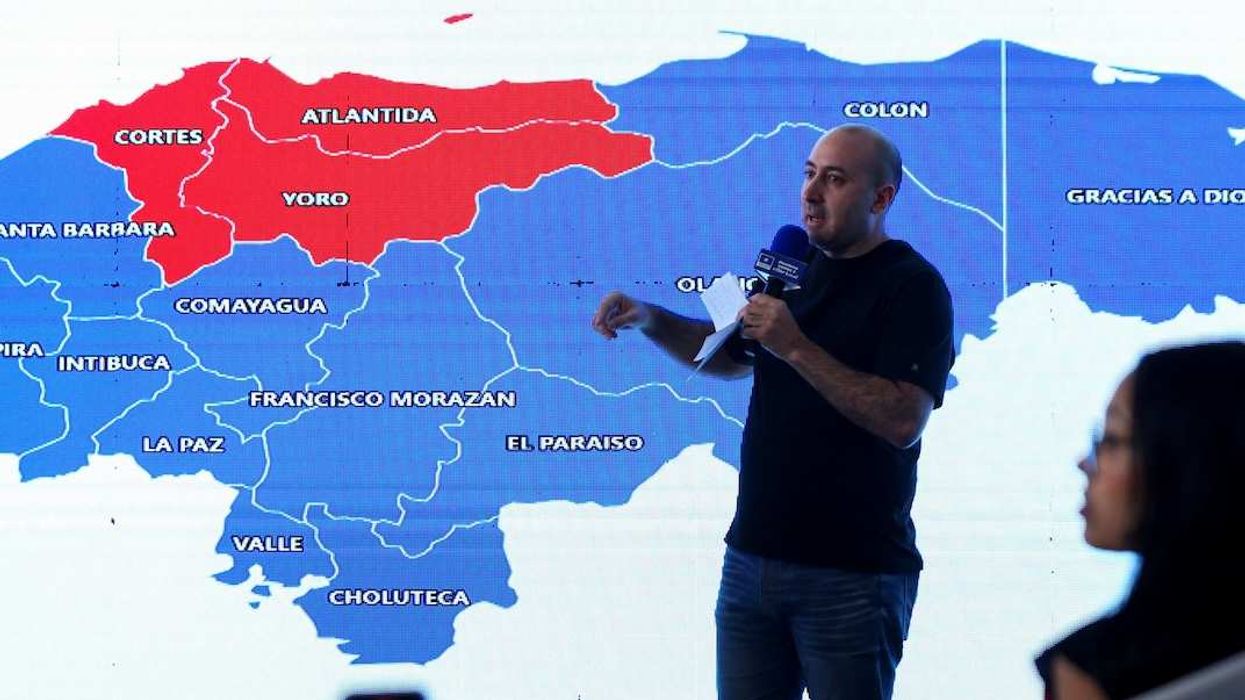The opposition’s shotgun wedding is off in Taiwan. Just two weeks ago, with the blessing of Beijing, the Kuomintang Party and the Taiwan People’s Party announced their intention to field a single candidate in the country’s Jan. 13 election in the hopes of defeating the ruling Democratic Progressive Party. It was a move cheered by China, which is no fan of the current frontrunner, DPP’s pro-independence candidate, William Lai Ching-te.
But on Thursday, negotiations collapsed on the political equivalent of a reality TV show as business magnate and independent candidate Terry Gou moderated a live broadcast of efforts to break the deadlock over which opposition party’s candidate should be on the ballot. After mutual accusations of bad faith, KMT leader Hou Yu-ih read a private text message from TPP rival Ko Wen-Je that said Gou needed to “find a reason” to drop out of the presidential race. In a dramatic finale, KMT negotiators walked off the set as the cameras were rolling.
Both opposition parties have now registered separate candidates in the race. The entire spectacle played into the DPP’s hands, prompting Lai to ask, “Should we dare to hand over the business of running the country to these people?”
The opposition now has little chance of defeating Lai, who further boosted his candidacy last week by naming Hsiao Bi-Kim, Taiwan’s representative to the United States, as his vice-presidential running mate. Since Beijing considers the pair a “union of pro-independence separatists,” analysts agree that a Lai-Hsaio victory would likely further degrade already hostile relations between Taiwan and China, leading to greater military escalation and economic coercion.



















